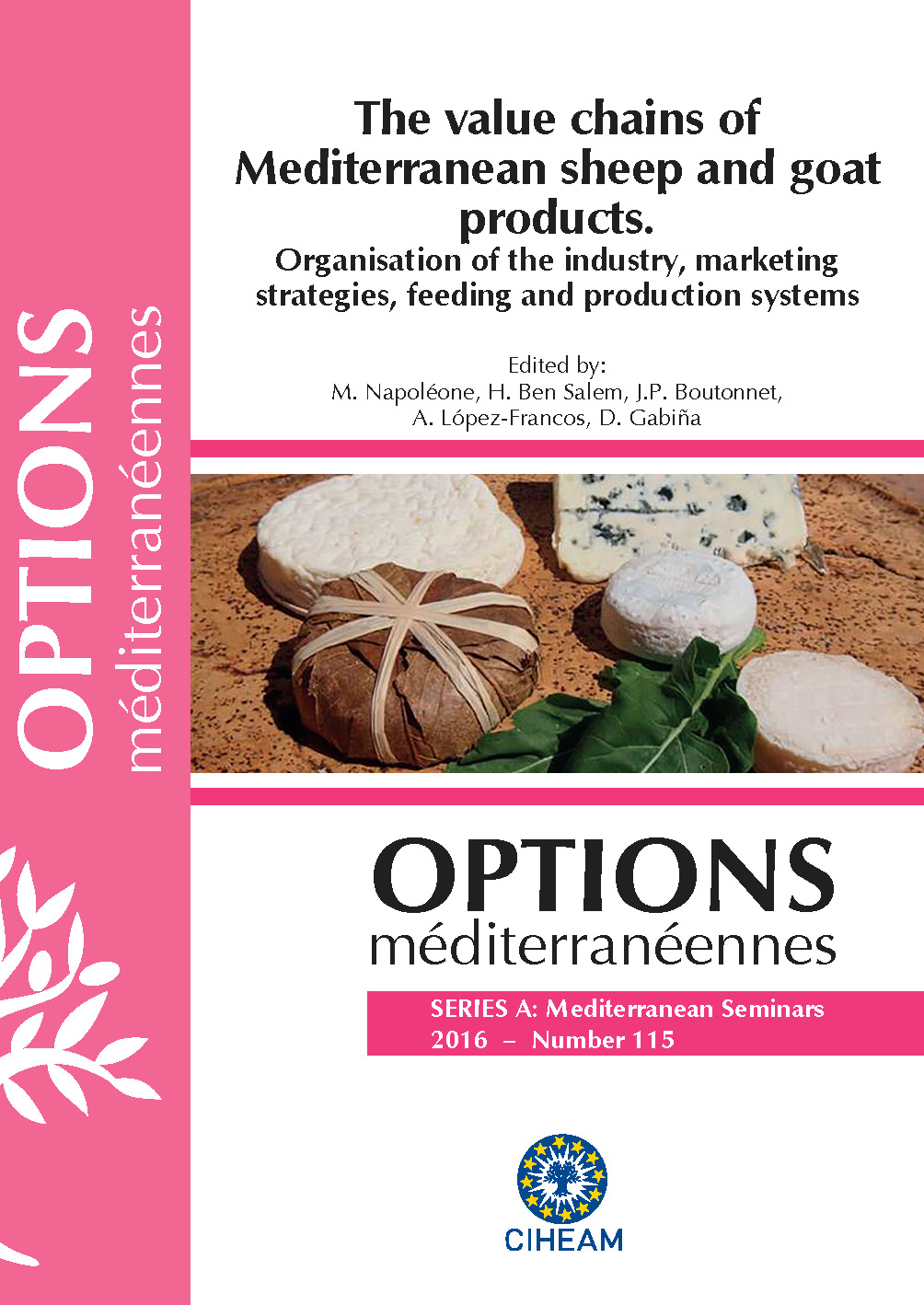| Article précédent | p. 597-601 | Article suivant |
Effects of the inclusion of oak tannins in a diet rich in linoleic acid on in vitro rumen biohydrogenation and fermentation in sheep
There is a lack void of knowledge about which of the many types of tannins might be more specific and useful, in practice, to interfere with rumen biohydrogenation (BH) and modulate the fatty acid (FA) profile of ruminant derived products without impairing diet utilization. Two in vitro assays with batch cultures of rumen microorganisms were conducted to analyze the effect of an oenological commercial extract of oak tannins, at a practical dose under farm conditions (2% DM), on the rumen BH and fermentation of a diet also supplemented with 2% DM of sunflower oil. In the first experiment (12 h incubations), freeze-dried ruminal digesta were analyzed for FA composition. In the second one (24 h incubations), rumen fermentation parameters and bacterial community were examined. The addition of 2% DM of the oak tannin extract proved (P<0.01) to be able to slightly reduce the concentration of 18:0 (-5.2%) and increase those of 18:2n-6, n-3 polyunsaturated FA (PUFA) and n-6 PUFA (by approx. +64%), while tended (P<0.10) to decrease trans-10 18:1 (-9%) and enhance trans-11 18:1 (+14%). These changes were accompanied by increases in the mean value of odd- and branched-chain FA, as well as in some keto-FA concentrations (P<0.05). On the other hand, it had no significant effects on the rumen fermentation characteristics that were analyzed (e.g., gas production kinetic, extent of OM degradation, pH, or ammonia and VFA concentrations; P>0.10). Although positive, when explored at practical doses in terms of animal feeding, results on the use of tannins to modulate microbial BH are not as promising as initially expected. More research in this field is still necessary.
Il y a un manque de connaissances sur lesquelles de nombreux types de tanins pourraient être plus spécifiques et utiles, dans la pratique, pour interférer avec la biohydrogénation (BH) ruminale et moduler le profil en acides gras des produits de ruminants sans nuire à l’utilisation du régime. Deux essais in vitro avec des cultures non-renouvelées de microorganismes du rumen ont été conduits pour analyser l’effet d’un extrait oenologique commercial de tanins de chêne, à dosage pratique dans des conditions d’exploitation (2% MS), sur la BH et la fermentation ruminale d’un régime supplémenté en huile de tournesol (2% MS). Dans la première expérience (12 h d’incubation), la composition en acides gras (AG) des digesta ruminales lyophilisées a été analysée. Dans la deuxième expérience (24 h d’incubation), la fermentation et la communauté bactérienne ruminale ont été examinées. L’addition d’un 2% MS de tanins de chêne s’est avérée (P<0,01) efficace pour réduire légèrement la concentration de 18:0 (-5,2%) et accroitre celles de 18:2n-6, acides gras polyinsaturés (AGPI) n-3 et AGPI n-6 (d’environ +64%), tandis qu’il y avait une tendance (P<0,10) à diminuer le trans-10 18:1 (-9%) et à augmenter le trans-11 18:1 (+14%). Ces modifications n’ont pas été accompagnées d’incréments de la teneur moyenne en AG impairs et ramifiés, ainsi qu’en certains céto-AG (P<0,05). Toutefois, elle n’a pas eu des effets sur les caractéristiques de la fermentation ruminale analysées (par exemple, paramètres de la cinétique de production de gaz, extension de la dégradation, pH ou concentrations d’ammoniac et AGV; P>0.10). Malgré ces effets positifs, les résultats de l’utilisation de tanins à dose pratique ne sont pas aussi prometteurs comme initialement prévu. Il faudrait encore approfondir les recherches à ce sujet.
- [ Afficher ]
- [ Télécharger ]
- [ Exporter la citation ]
Vous pouvez télécharger la citation au format :
- [ Imprimer ]
-
Mots-clés
ACIDE GRAS, BREBIS, FERMENTATION DU RUMEN, TANNINCiter cet article
Carreño D., Hervás G., Toral P.G., Belenguer A., Frutos P. Effects of the inclusion of oak tannins in a diet rich in linoleic acid on in vitro rumen biohydrogenation and fermentation in sheep. In : Napoléone M. (ed.), Ben Salem H. (ed.), Boutonnet J.P. (ed.), López-Francos A. (ed.), Gabiña D. (ed.). The value chains of Mediterranean sheep and goat products. Organisation of the industry, marketing strategies, feeding and production systems. Zaragoza : CIHEAM, 2016. p. 597-601. (Options Méditerranéennes : Série A. Séminaires Méditerranéens; n. 115). Joint Seminar of the Subnetworks on Nutrition and on Production Systems of the FAO-CIHEAM Network for Research and Development in Sheep and Goats, 2015/06/16-18, Montpellier (France) . http://om.ciheam.org/om/pdf/a115/00007339.pdf



